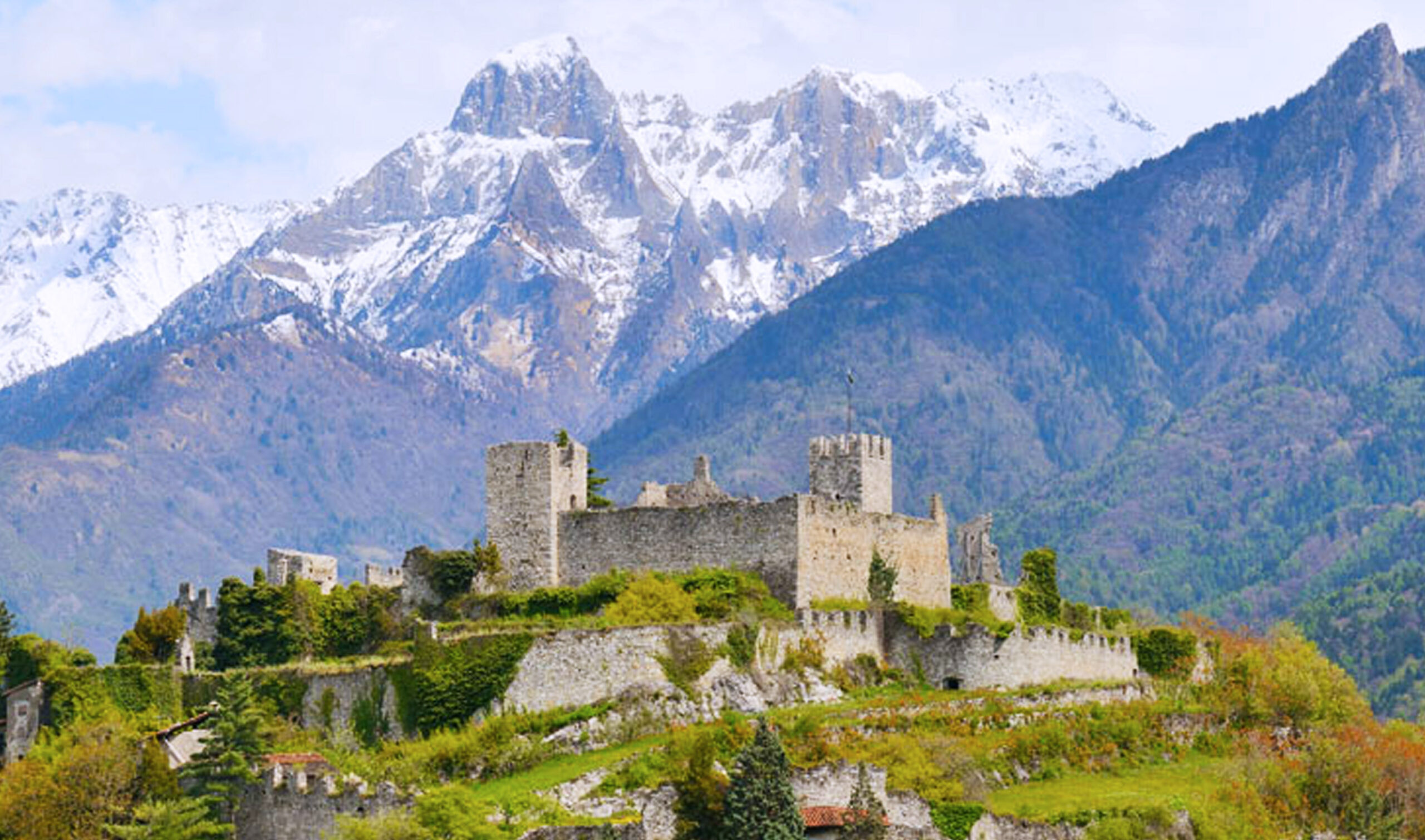The history of Brescia has been punctuated by attacks throughout its long history. Falling under the dominion of a dozen different subjugators during its history, the resilience of its citizens has earned them the nickname “Leonessa d’Italia” – Lioness of Italy. The province is well-known for the significant number of castles and fortresses, many dating back to the early medieval period. Within the province, you will find more than one dozen, including the castles of Brescia, Scaligero, Lonato, Breno, Padernello, Pozzolengo, Carzago, Bornato and Drugolo, as well as Bonoris Castle and the Fortress of Anfo.
Much earlier in the history of Brescia was the invasion of the town in the 7th century BC, by the Gallic Cenomani, who made it their capital. The Romans conquered the area in 225 BC and in 89 BC, Brixia, as it was known, was recognized as civitas (city). A few decades later, its inhabitants received Roman citizenship. The city at that time had at numerous temples, an aqueduct, a theater and a forum.
The fall of the Roman Empire saw the city attacked and besieged with regularity over a period lasting for centuries. In 402, the city was ravaged by the Visigoths of Alaric I. Fifty years later, the city was besieged and sacked by Attila the Hun. Four decades later, it became one of the first conquests by the Gothic General Theoderic the Great. In 568, Brescia was taken from the Byzantines by the Lombards, who made it the capital of one of their duchies.
In 774, Charlemagne captured the city and ended the reach of the Lombard Kingdom in northern Italy. From 855 to 875, under Louis II the Younger, Brescia become de facto capital of the Holy Roman Empire. It became a free city in the early 12th century and expanded into Bergamo and Cremona, but remaining independent would come at a deadly cost for both its residents and attackers.
In 1311, Henry VII, Emperor of the Holy Roman Empire, laid siege to Brescia for six months. He ultimately lost three-fourths of his army trying to capture the city. Later, the Veronese House of Scaliger also sought to place Brescia under subjection, but without success.
The 15th century was a particularly complicated period for Brescia. Known as the Age of the Signories, the city came under the domination of powerful noble families. It was acquired in 1406 by Pandolfo III Malatesta, an Italian condottiero, the Lord of Fano and a member of the famous House of Malatesta. He bartered Brescia to Filippo Maria Visconti, the Duke of Milan in 1416, who sold it to the Venetians in 1426. While under their rule, Brescia flourished and prospered. Musical arts and development made Brescia, Cremona and Venice the centers for all stringed instruments, including the violin, viola and cellos that we know today. However, after nearly a century of peace, Brescia found itself under attack again.
The ‘Sack of Brescia’ took place on February 18, 1512, during the War of the League of Cambrai. French armies ordered the city to surrender; when it refused, it was attacked. The French prevailed and looted the city after massacring thousands of its citizens. After this disaster, it took until 1520 for Venice to regain control. Brescia shared the fortunes of the Venetian Republic until the latter fell to the French again at the end of the 18th century, this time at the hands of Napoleon Bonaparte. In 1815, Brescia was annexed to Austria under a puppet state known as the Kingdom of Lombardy-Venetia. Brescia revolted in 1848; then again in March 1849, when the Piemontese army invaded Austrian-controlled Lombardy. The people of Brescia overthrew the local Austrian administration; however reinforcements of the Austrian army were sent, led by General Haynau, also known as ‘The Hyena of Brescia.’ From March 23 to April 1, 1849, the citizens of Brescia fought fiercely against the Austrians for ten bloody days, a period still commemorated as the Ten Days of Brescia. In 1859, the citizens of Brescia welcomed Giuseppe Garibaldi to the city. They in turn voted overwhelmingly for inclusion in the newly founded Kingdom of Italy.





